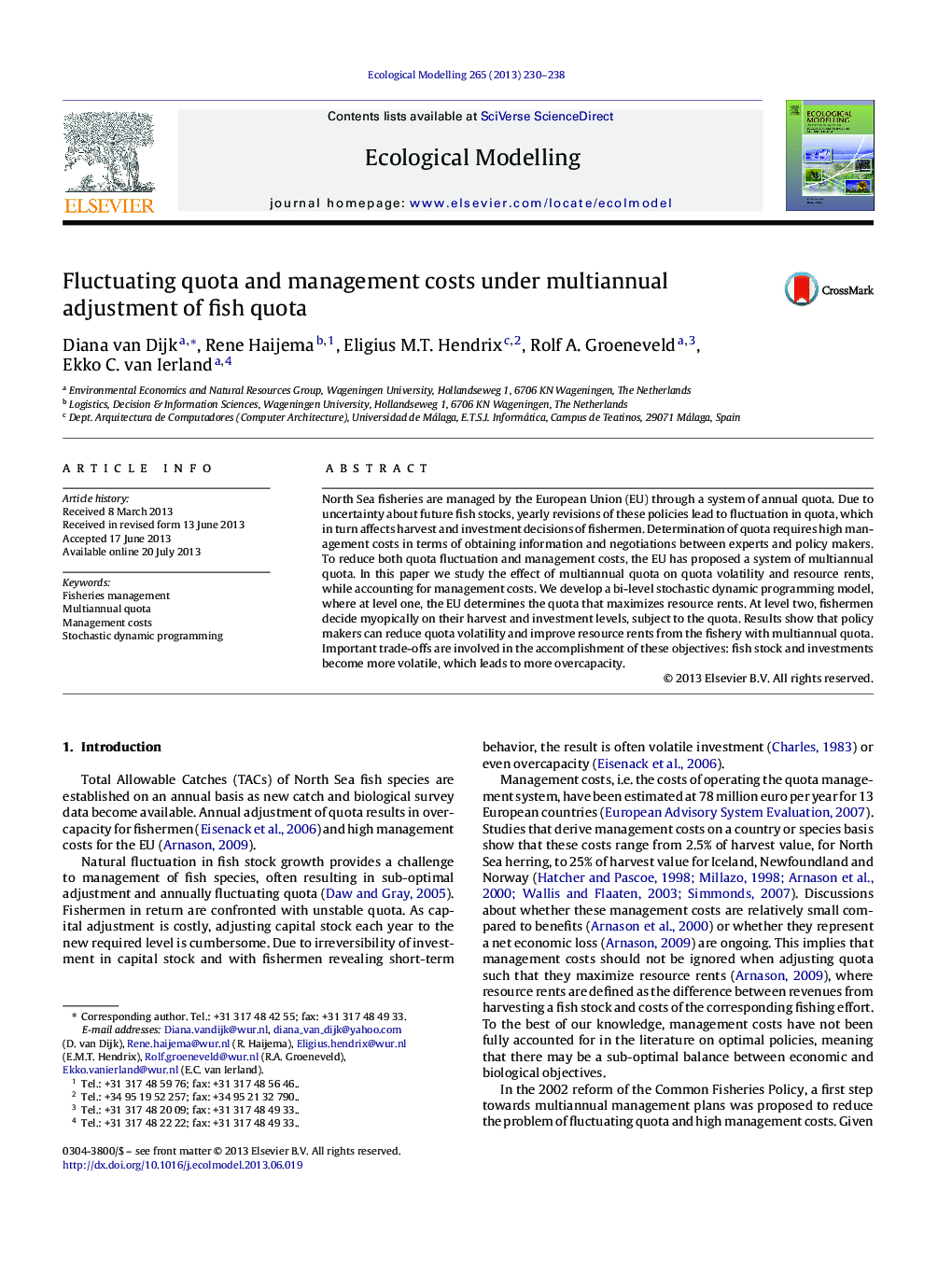| Article ID | Journal | Published Year | Pages | File Type |
|---|---|---|---|---|
| 6297099 | Ecological Modelling | 2013 | 9 Pages |
Abstract
North Sea fisheries are managed by the European Union (EU) through a system of annual quota. Due to uncertainty about future fish stocks, yearly revisions of these policies lead to fluctuation in quota, which in turn affects harvest and investment decisions of fishermen. Determination of quota requires high management costs in terms of obtaining information and negotiations between experts and policy makers. To reduce both quota fluctuation and management costs, the EU has proposed a system of multiannual quota. In this paper we study the effect of multiannual quota on quota volatility and resource rents, while accounting for management costs. We develop a bi-level stochastic dynamic programming model, where at level one, the EU determines the quota that maximizes resource rents. At level two, fishermen decide myopically on their harvest and investment levels, subject to the quota. Results show that policy makers can reduce quota volatility and improve resource rents from the fishery with multiannual quota. Important trade-offs are involved in the accomplishment of these objectives: fish stock and investments become more volatile, which leads to more overcapacity.
Related Topics
Life Sciences
Agricultural and Biological Sciences
Ecology, Evolution, Behavior and Systematics
Authors
Diana van Dijk, Rene Haijema, Eligius M.T. Hendrix, Rolf A. Groeneveld, Ekko C. van Ierland,
